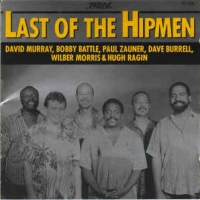What distinguishes music from noise?
A question that came up in Colin's recent interview.
It's a question close to my heart, because - and I'm sure I'm not the only person here who gets this - people say 'what is that awful noise you're playing'?
I obviously don't think it's noise. But why do others?

Comments
Very much in the ear of the beholder.
I think we all have some in built sense of rhythm, timing, pace, what note should follow another etc. This then becomes broadened by the music of others that we listen to or music of any source that we encounter over our lifetimes. This leads to us enjoying a much broader spectrum of music as we get older.
However, I also think the majority of us have a limit which once crossed leaves the resulting sounds disjointed to our individual perception of what music is. This is when music becomes noise. Amongst that you also have musicians/composers who deliberately push those limits, to create something new/different or to simply add an unexpected twist. The development of classical music over the centuries clearly shows this as basic trend. Repeated by other genres leading to yet more emergent genres. Done with subtlety it will be accepted by the majority or at least the target audience. Done crudely will alienate most and become a more underground genre until such times as it either gains more notoriety or is softly adopted by more mainstream outlets.
For me, free jazz falls into this category, a delight to some but a cacophony to me. Yet, rap for example, which I simply dislike (OK the odd few do get through) still falls well inside my personal parameters of music but does not for others.
Obviously we have to ignore music we simply we don't like for the purpose of this thread as our ears and brain are still telling us it is (bad) music i.e. has an expected structure that lifts it, at least, from being simply a noise.
All amorphous terms I'm afraid, so I'm probably just shifting the goal posts. :-D
Speaking biologically I suspect that music can be distinguished from noise in terms of the degree to which it's production or identification aids sexual reproduction for the given individual who is doing the producing or identifying. From what I've read, I'm fairly convinced that "music" evolved as a fitness indicator under sexual selection pressure (in our own species but also in others). Ie the ability to produce or identify music requires a level of genetic fitness (ie low mutation load) high enough to express itself in the neural circuitry requied to produce or identify "music" (a complexity of ordered and patterned sounds). Singing also demands careful control over one's vocal chords and and playing music requires good hand-eye coordination (also genetic fitness indicators). Being an accomplished "musician" also implies that one has the time to practice (in itself a fitness indicator as it suggests that one has time to spare from hunting and gathering (due to one being such a "successful" organism)).
Nice to be reminded of your passion for language.
Have you been reading Steven Mithen purchance...?
If so, here is hard evidence (from my one of my favourite sources) that he was on to something with his language evolving from / with music theories: